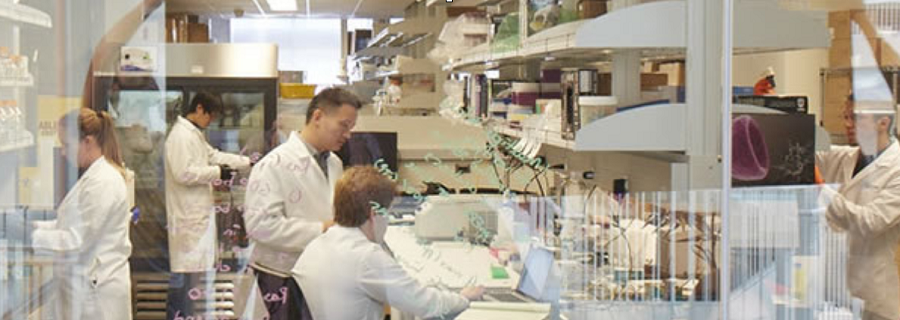Cancer Prevention and Control Research

Making a difference in the community
The Cancer Prevention and Control (CPC) research program is engaged in reducing cancer burden through transdisciplinary collaborative science within three thematic areas that address strategic points along the cancer continuum: 1) prevention and risk reduction, 2) screening and early detection, and 3) survivorship and quality of life. Within CPC, the focus is on precision public health and generating findings to inform and deliver the right intervention at the right time, every time, to the right population.
Research Themes
- Prevention and Risk Reduction: Investigators in this theme conduct research designed to prevent and reduce the risk of cancer, spanning from epidemiologic and mechanistic discovery to efficacy and implementation trials. Researchers investigate the basic biology of cancer risk, the impact of multiple determinants of cancer risk, and health promotion and chemoprevention interventions.
- Screening and Early Detection: This theme is concerned with how to best promote the adoption of cancer screening recommendations and developing and testing novel screening technologies designed to identify early aggressive disease. Team members investigate ways to improve the precision of screening tests and the development and implementation of evidence-based screening strategies.
- Survivorship: In this theme, CPC investigators study the impact of cancer and cancer treatment on the quality and quantity of life of cancer survivors and develop targeted strategies and approaches to improve health care and outcomes. Interdisciplinary research teams investigate the mechanisms of cancer treatment related sequelae, targeted therapeutic approaches to improve quality of life in cancer survivors and improving care of patients with advanced cancer, particularly at the end of life.
Program Members
-
-
- Elizabeth Berry, M.D.
- Dermatology and Melanoma Portland
-
- Amanda Bruegl, M.D. (she/her)
- Cancer, Gynecologic Oncology and Cervical Cancer Portland
-
-
-
-
-
- Jennifer E. DeVoe, M.D.
- John and Sherrie Saultz Professorship in Family Medicine Innovation
- Portland
-
-
-
-
-
- Aaron Grossberg, M.D., Ph.D.
- Cancer, Breast Cancer and Gastrointestinal Cancer Beaverton
-
-
- Brandon Hayes-Lattin, M.D., FACP
- Medical Director of the OHSU Knight Cancer Institute’s Adolescent and Young Adult (AYA) Oncology Program
- Cancer, Adolescent and Young Adult Oncology and Bone Marrow Transplant Portland
-
-
- Sancy Leachman, M.D., Ph.D.
- John D. Gray Endowed Chair for Melanoma Research
- Cancer, Dermatology and General Dermatology Hillsboro
-
- Ryan J. Li, M.D., MBA
- Director, OHSU Robotic Head and Neck Surgery Program
- Cancer, Otolaryngology (ENT) and Head and Neck Cancer Portland
-
- David Lieberman, M.D.
- Digestive Health and Gastroenterology
-
- Gabrielle Meyers, M.D.
- Portland
-
-
- Terry Morgan, M.D., Ph.D.
- Pathology, Cytopathology and Surgical Pathology
-
-
-
-
-
-
-
-
-
-
-
- Jason Allen Webb, M.D., DFAPA, FAAHPM, FACP (he/him)
- Section Chief, Palliative Care
- Hospice and Palliative Care, Internal Medicine and Psychiatry
-
-